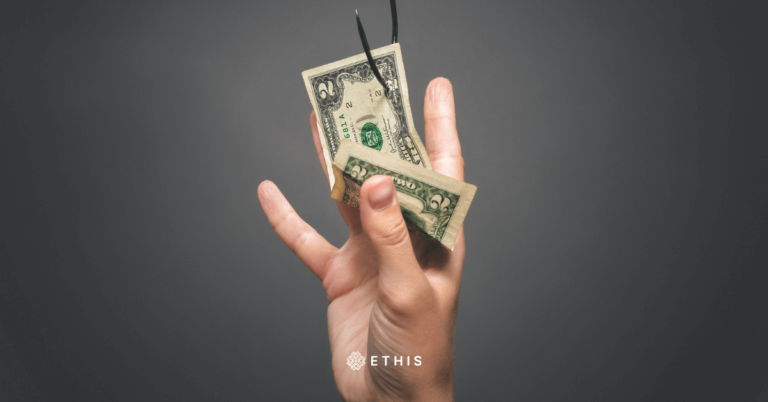
Ponzi schemes are methods of fraud that deals with a non-existent company. However, the confidence in the success of this ‘company’ is reassured through the payment of quick returns to initial investors from the money invested by later investors.
On the other hand, Multi-level marketing (MLM) is a method that some direct sales companies use to encourage their current distributors to enroll new distributors. The way that current distributors are encouraged is by paying them a percentage of their enrolees’ sales
There are a number of important differences between Ponzi and Marketing schemes:
1) Ponzi schemes and MLMs have different setups


In a Ponzi scheme set up, there is clearly no underlying product being sold. Investors contribute their funds to the portfolio manager (also known as the fund manager) who promises high rates of return (compared with other financial instruments) and when these investors request their money back, they are compensated with inflowing funds contributed by later investors.
In MLM however, the commission is paid to distributors at various levels, upon selling a physical product. In MLM the initial participant must recruit additional investors who will further continue to recruit more investors and those investors will continue to recruit more investors.
Related: 7 Money Management Tips to Improve Your Personal Finance
2) Flow of funds in Ponzi schemes vs MLMs


In a Ponzi scheme, the person who organizes this type of scam is in charge of controlling the whole operation. There is no genuine investment opportunity in the financial markets because the funds are merely transferred from one participant to another.
In Multi-Level Marketing, however, an incentive is presented to the participants. This incentive is presented as an investment opportunity e.g. the right or the chance to sell a specific product. Each investor pays the person who recruited them for this chance to sell the advertised product and the recipient of the funds must share a portion of the proceeds with those at higher levels of the pyramid structure.


3) Associated risks


With regards to the risks associated with each scheme, in a Ponzi scheme, there is no tangible product sold but rather a false investment. However, MLM is used as a channel to sell a physical product.
Therefore, the risks associated with Ponzi schemes outweigh those connected with MLM schemes because of the non-existence of an underlying product in the Ponzi scheme.
4) Promised compensation


In a Ponzi scheme, the enrolls are asked to make an upfront monetary payment as a prerequisite to enrolling to receive compensation. These participants make money mainly from enrollment fees as opposed to selling physical products.
However, in an MLM company, enrolls are also asked to pay money upfront in order to join the company, but the difference is that the participants in an MLM scheme always make money from enrollment fees AND by selling products.





5) Examples
Ponzi schemes
Bernie Madoff ran the longest-running Ponzi scheme. Over a period of 20 years, investors discharged $17.5 billion into his “investment company”. The 2008 financial crisis exposed the scheme when investors tried to extract $7 billion. With a net worth of merely $300 million, Madoff was unable to compensate them. He pled guilty and was given a 150-year sentence. Madoff died in prison on 14 April 2021 at the age of 82.
Multi-Level Marketing companies
An example of a well-known direct-sales company that uses multi-level marketing is Amway. The latest high-profile multi-level marketing company to defend its practices is Herbalife Ltd., a producer, and supplier of weight-loss and nutritive products with more than 500,000 distributors. According to Herbalife, 80% of its participants do not recruit other participants.
6) Legality
With regards to the legality of each scheme, Ponzi schemes are considered to be fraudulent investment management services and therefore illegal, however, MLM is considered to be a mere marketing scheme with legitimate products to be sold and is therefore considered to be legal.
With that being said, many people have lost vast amounts of money with both Ponzi schemes AND MLM strategies, being promised extraordinarily high returns and lavish lifestyles. Some schemes even go as far as promising and guaranteeing returns for participants and even saying that participants will be able to quit their jobs within a short period of time because they will expect to earn a very high return in the future.
Related: 8 Ways To Achieve Financial Freedom | Set yourself up for financial success
The Shariah permissibility of each scheme


Ponzi Schemes
The Maqasid al-Shariah (objectives of Shariah) includes the protection of property, life, lineage, religion, and intellect. From a Shariah permissibility point of view, Ponzi schemes would be considered haram (impermissible) as they are classified as fraudulent activities and do not uphold the Maqasid al-Shariah.
In Ponzi schemes, there is gharar (uncertainty) involved in the transaction because the existence of the subject matter is questionable.
There is also zulm involved i.e. unlawful consumption of people’s wealth. Only those pioneer members who have entered the scheme early will get the biggest share of the rewards, while those who participated later, tend to lose a lot of money.
There is definitely deception involved as these schemes usually cheat people by overpromising huge rewards (e.g. get rich quick methods) when in reality it is not possible for most people to achieve.


Multi-Level Marketing
In terms of the Shariah permissibility of MLM structures, they can be considered halal or haram depending on whether certain conditions are met.
According to the contemporary Malaysian scholar, Dr. Ustaz Zaharuddin (2007), the minimum standard set for an MLM business to be Shariah-compliant are as follows:
- No element of fixed rewards without effort should exist
- The transaction should not involve elements of force or coercion.
- They should not contain elements of a pyramid scheme that involve elements of gambling (maysir or qimar) or elements of deception, manipulation, or exploitation.
- They should have real value to society and cannot involve hiyal (a trick that is used in commercial or financial transactions to avoid the basic prohibitions by Shariah).
- Ribawi items cannot be traded unless on spot bases (i.e. no credit sale). These items which are mentioned in the hadith include gold, silver, currencies, wheat, barley, salt, and dates.
- The reward must be based on real business and hence, compensation should not be tied to the number of new people recruited, but rather, based on the number of sales.
- MLM companies should not fall within a grey area of uncertainty if it is to be considered Shariah-compliant. This comes from the Hadith, “That which is lawful is clear and that which is unlawful is clear, and between them is a dubious area…” [Nisai Hadith]
You should, in our opinion, go with your gut. Knowing whether or not the people or company behind a scheme have your best interests at heart can help you avoid falling victim to a scam. It is in your best interest to educate yourself about this topic because doing so can, without a doubt, save you your hard–earned money!





Top Posts
Islamic P2P Crowdfunding Explained
How to Earn Halal Money? The Money Mindset
Halal Investments for Singapore Muslims? It’s time for a shake-up in the Islamic Investments scene.
Smart investment for making Halal money
3 Reasons Why Property Crowdfunding is the Smart Investment for You